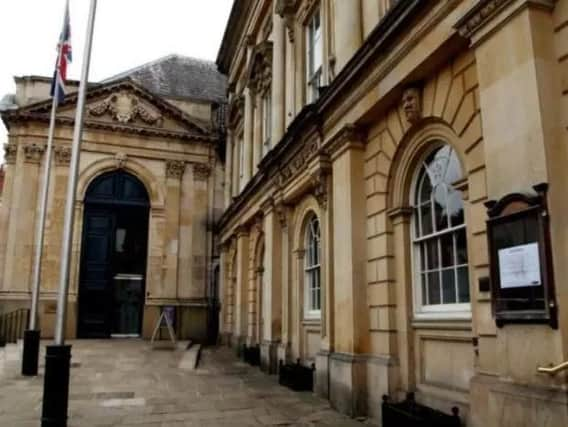Failings identified during inquest into death of inmate in Northamptonshire prison


Andrew Crane, 53, suffered a cardiac arrest while in HMP Rye Hill on November 16, 2016, and although assistant coroner Philip Barlow accepts little could have been done to successfully resuscitate him, Mr Barlow highlighted five failures prior to the prisoner's death.
Representatives of the family, East Midlands Ambulance Service and Rye Hill operator G4S were all present at the inquest, held in Northampton.
Advertisement
Hide AdAdvertisement
Hide AdReturning his conclusions Mr Barlow said: “I don’t think anybody disputes he suffered a cardiac arrest from which he could not be resuscitated.
“I accept the medical cause of death.”
He added: "There were failings in the care given to him in prison and by EMAS. This has been a two-day inquest almost entirely concerning those failings and how they have been addressed.
“I think that not to record those failings would make the record incomplete and would be unfair for the family.”
The first failing highlighted by Mr Barlow was there was no monitoring of Crane's blood pressure following a previous high rating.
Advertisement
Hide AdAdvertisement
Hide AdSecondly, his diabetic status following a high blood sugar rating was also not monitored, and thirdly he was not placed on an appropriate diabetic pathway after his diagnosis in August 2016.
Mr Barlow found a failing in the lack of updates provided to the ambulance by the prison. The assistant coroner said the prison should have informed the emergency services that Crane was not breathing and was being given CPR while the ambulance was on its way to HMP Rye Hill.
Lastly, Mr Barlow identified there was a delay in dispatching the ambulance, which had to undergo a security check, be cleaned and refuelled before it set off for the prison.
Giving evidence on the first day were two prison officers present when Crane began feeling unwell, and the prison’s nurse who arrived at the scene shortly after.
Advertisement
Hide AdAdvertisement
Hide AdAt 5:44am on November 16, 2016 Crane, from Nottingham, pressed the buzzer in his cell to call for a prison officer, to whom he complained he had chest pains.
A code blue was signalled 13 minutes later at 5:47am when, after the cell buzzer was sounded a second time (in this instance by Crane’s cellmate), Crane had dropped to his knees and was struggling to breathe.
When the prison officer arrived at the cell door he sounded the code blue alarm after assessing Crane’s breathing difficulties.
CPR was administered and a defibrillator was brought to the cell.
Advertisement
Hide AdAdvertisement
Hide AdThe ambulance was called shortly after 5.47am, was en-route by 6.37am, and arrived at the front gates of HMP Rye Hill at 6.40am.
It then took eight minutes for the paramedics get to Crane's cell due to the prison's security (locking and unlocking doors).
Of concern to Mr Barlow was the delay between the prison's call for an ambulance and the time it took for the vehicle to set off.
The failings did not cause or contribute to Crane’s death said Mr Barlow and resuscitation was started promptly, the defibrillator was quickly available and the nurse was experienced in using it.
Advertisement
Hide AdAdvertisement
Hide AdEvidence given by Dr Winter of EMAS and Dr Goddard, a heart specialist, made that clear to Mr Barlow that Crane was unlikely to be resuscitated due to him having a long-term smoking habit which significantly contributed to his atherosclerosis (a disease in which plaque builds up inside the arteries).
The doctors also pointed out that people who suffer heart attacks outside of hospitals are highly unlikely to survive as their condition rapidly deteriorates.
"Andrew Crane was 53 years-old and a serving prisoner at HMP Rye Hill," concluded Mr Barlow.
"At about 6am he suffered a cardiac arrest in his cell and despite prompt and prolonged attempts to resuscitate him, including the use of a defibrillator, he died shortly after 7am.
"He died of natural causes."